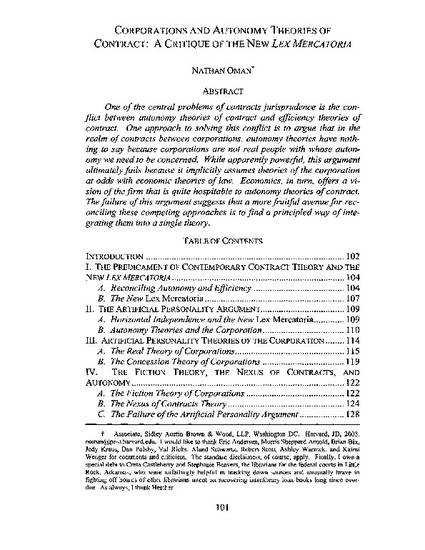
One of the central problems of contracts jurisprudence is the conflict between autonomy theories of contract and efficiency theories of contract. One approach to solving this conflict is to argue that in the realm of contracts between corporations, autonomy theories have nothing to say because corporations are not real people with whose autonomy we need to be concerned. While apparently powerful, this argument ultimately fails because it implicitly assumes theories of the corporation at odds with economic theories of law. Economics, in turn, offers a vision of the firm that is quite hospitable to autonomy theories of contract. The failure of this argument suggests that a more fruitful avenue for reconciling these competing approaches is to find a principled way of integrating them into a single theory.
Available at: http://works.bepress.com/nathan-oman/27/
